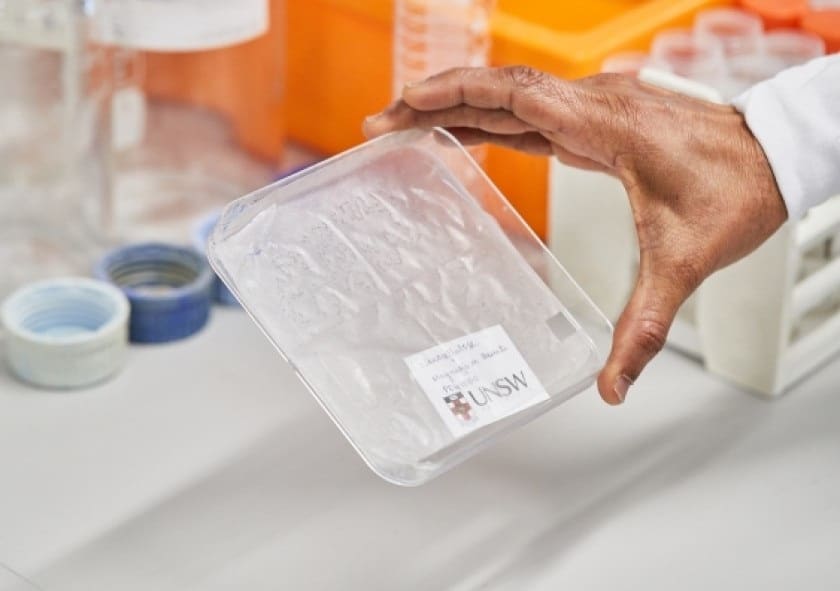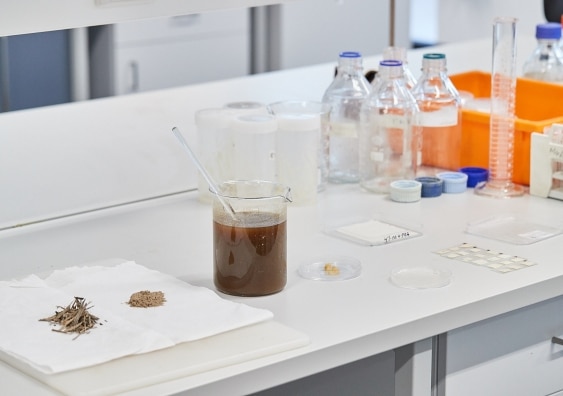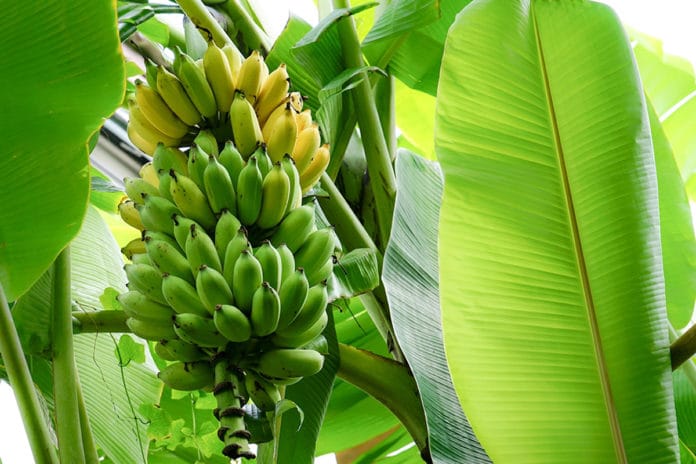Researchers from the University of New South Wales (UNSW) in Australia, have developed a novel method to turn banana plantation waste into biodegradable and recyclable packaging material.
According to the team, the banana-growing industry produces a large amount of organic waste, with only 12% of the plant being used (the fruit). And once the fruit is harvested, the plant dies. This makes banana plants especially suitable for alternative use.
A couple of UNSW researchers have been experimenting with the pseudostems of banana plants, which is basically the layered, fleshy trunk of the plant that cut down after each harvest and mostly discarded on the field. They turn this discarded by-product into sustainable packaging material.

The pseudostem consists mostly of water (90%), so the solid material ends up reducing down to about 10%. After sourcing their banana pseudostems from plants grown at the Royal Botanic Gardens in Sydney, the duo sets to work in extracting cellulose to test its suitability as a packaging alternative.
The team brings the pseudostem into the lab and chop it into pieces, dry it at very low temperatures in a drying oven. They then milled it into a very fine powder and placed in alkaline solution to extract the cellulose, which is then processed into films of varying thicknesses.

Associate Professor Jayashree Arcot said, they can use this extracted material called nano-cellulose for a range of applications, particularly single-use food packaging where so much ends up in a landfill. When processed, it has a consistency similar to baking paper and could be used to make alternatives to plastic bags, or as a foam-based alternative to plastic containers used to hold meat and fruit.
Researchers also confirmed that the material breaks down organically, is recyclable, and poses no contamination risks. “One of our Ph.D. students proved that we can recycle this for three times without any change in properties,” said Associate Professor Jayashree Arcot, who led the project
The team is now looking for industry partners in the packaging manufacturing industry or a fruit growing business to bring the technology to the market and making it as cost-effective as possible.
